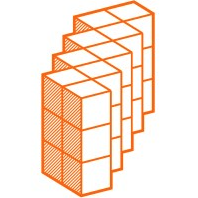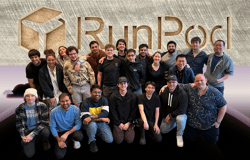At Google DeepMind, we value diversity of experience, knowledge, backgrounds and perspectives and harness these qualities to create extraordinary impact. We are committed to equal employment opportunity regardless of sex, race, religion or belief, ethnic or national origin, disability, age, citizenship, marital, domestic or civil partnership status, sexual orientation, gender identity, pregnancy, or related condition (including breastfeeding) or any other basis as protected by applicable law. If you have a disability or additional need that requires accommodation, please do not hesitate to let us know.
Snapshot
The Mint Team at Google Deepmind tackles the growing threat of media-based misinformation. We develop cutting-edge solutions to detect and understand various forms of manipulated media and misleading presentations of information.
Our work spans information quality and integrity, provenance analysis, and the development of tools for automatic fact-checking. We utilise machine learning and Google's powerful tools to combat misinformation and create a safer online environment.
About Us
Artificial Intelligence could be one of humanity’s most useful inventions. At Google DeepMind, we’re a team of scientists, engineers, machine learning experts and more, working together to advance the state of the art in artificial intelligence. We use our technologies for widespread public benefit and scientific discovery, and collaborate with others on critical challenges, ensuring safety and ethics are the highest priority.
The Role
We are seeking a talented and highly motivated Research Scientist to join our Media Integrity team. You will have the opportunity to conduct cutting-edge research in reinforcement learning, natural language processing, multi-step AI reasoning and computer vision. You will be responsible for developing novel algorithms, designing experiments, analysing data, and publishing your findings in top academic venues.
Key responsibilities
- Drive the projects by defining key research questions. Design, implement, and evaluate experiments to provide clear answers
- Collaborate with other researchers on joint projects
- Publish research findings in top academic conferences and journals
- Stay up-to-date with the latest advancements in the field
About You
In order to set you up for success as a Research Scientist at Google DeepMind, we look for the following skills and experience:
- PhD in Computer Science, Statistics, or a related field
- Strong publication record in top machine learning conferences (e.g., NeurIPS, ICML, ICLR, AAAI)
- Expertise in one or more of the following areas: reinforcement learning, natural language processing, computer vision
In addition, the following would be an advantage:
- A proven track record of publications and relevant experience in reinforcement learning
- Experience with training, evaluating, or interpreting large language models
- Proven ability to design and execute independent research projects
- Excellent communication and collaboration skills
- Passion for fighting against misinformation!
The US base salary range for this full-time position is between $136,000 - $210,000 + bonus + equity + benefits. Your recruiter can share more about the specific salary range for your targeted location during the hiring process.
Top Skills
What We Do
We’re a team of scientists, engineers, machine learning experts and more, working together to advance the state of the art in artificial intelligence. We use our technologies for widespread public benefit and scientific discovery, and collaborate with others on critical challenges, ensuring safety and ethics are the highest priority.
Our long term aim is to solve intelligence, developing more general and capable problem-solving systems, known as artificial general intelligence (AGI).
Guided by safety and ethics, this invention could help society find answers to some of the world’s most pressing and fundamental scientific challenges.
We have a track record of breakthroughs in fundamental AI research, published in journals like Nature, Science, and more.Our programs have learned to diagnose eye diseases as effectively as the world’s top doctors, to save 30% of the energy used to keep data centres cool, and to predict the complex 3D shapes of proteins - which could one day transform how drugs are invented.







